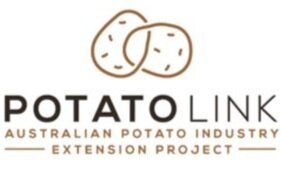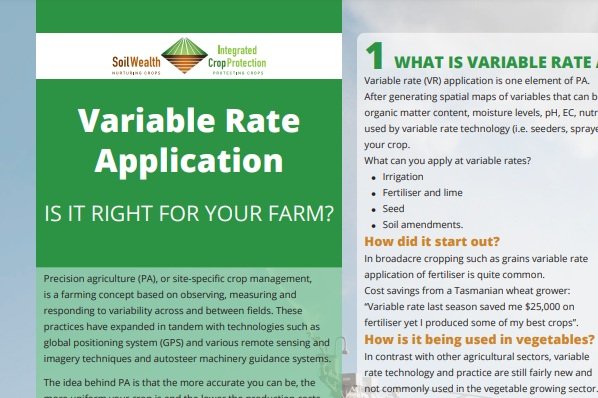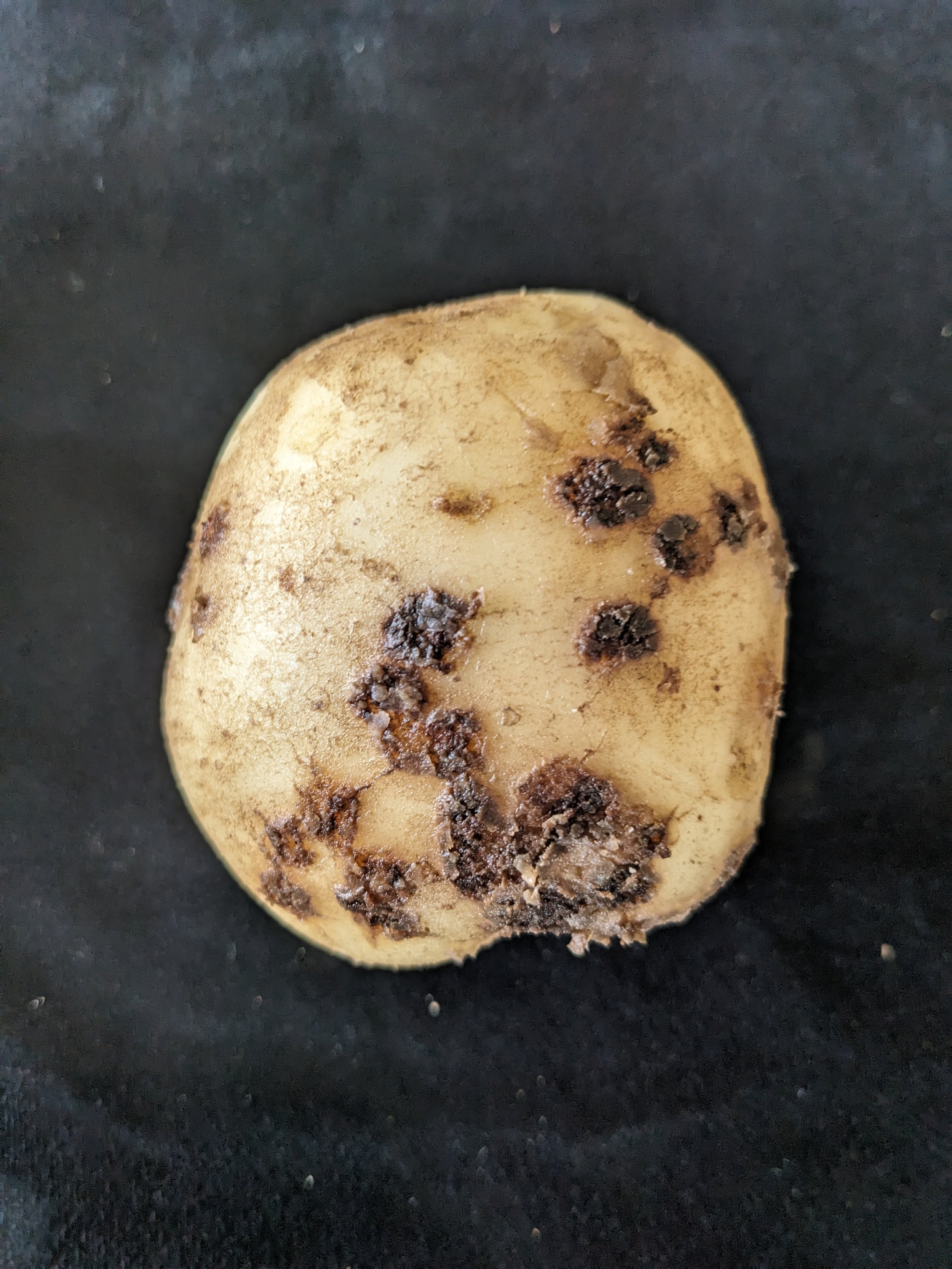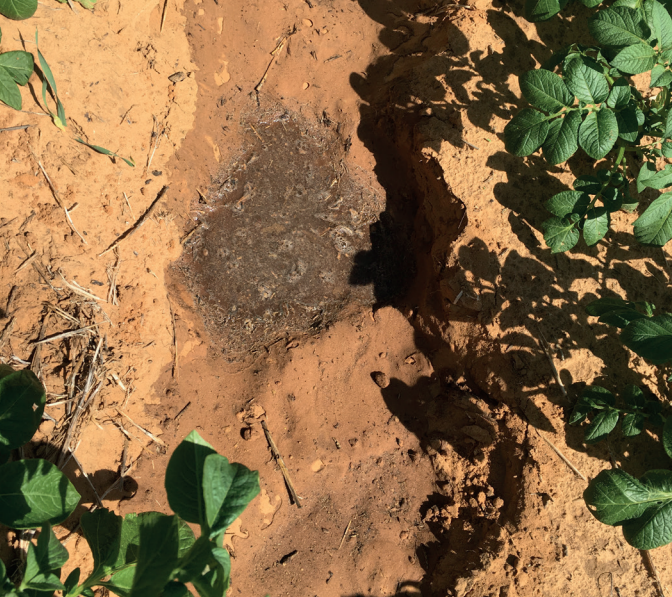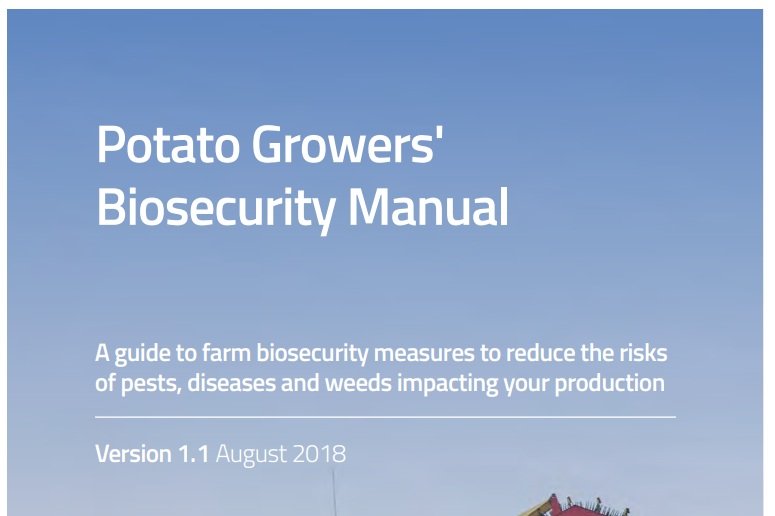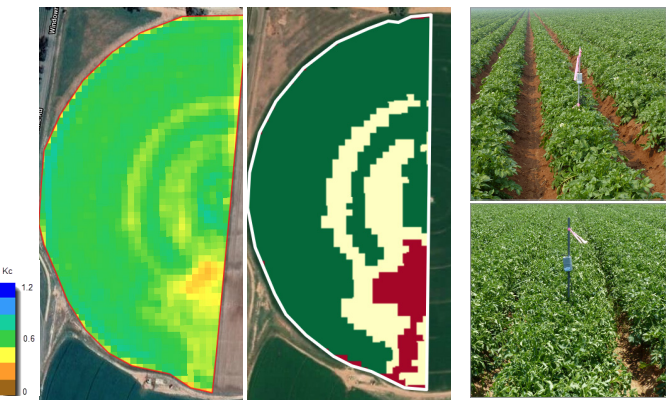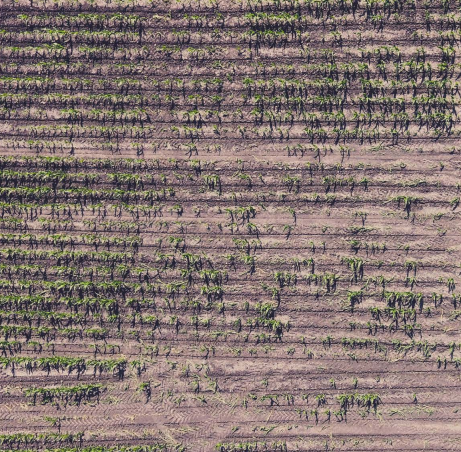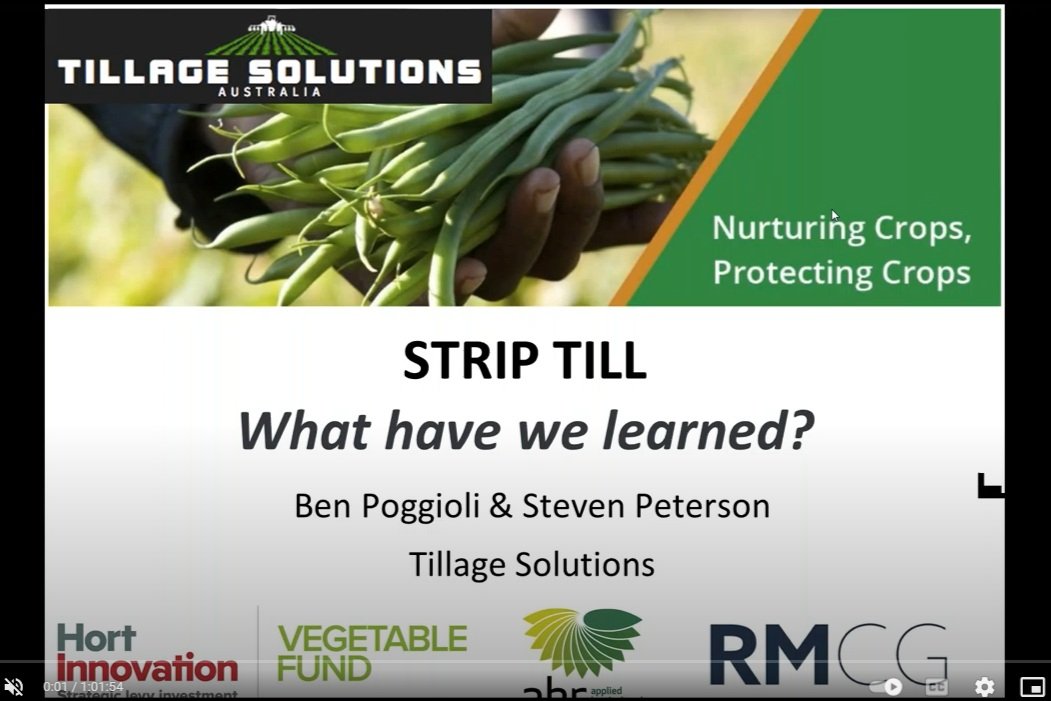What you need to know about soil microbiology
Soil health is closely linked to soil microbiology. This fact sheet outlines information on a broad group of soil microbes including fungi, bacteria and pseudomonas, and explains how different levels, numbers and ratios of these microbes can impact the overall health of your soil and crops.
Biological products and new phosphorus fertiliser technology for potato productivity
The Potato Pest and Disease R&D Coordination project and the Soil Wealth and ICP project, together with McCain and Nutrien, delivered an informative session on biologicals R&D resources, products and testing options for potato growers.
International Potato Pest and Disease R&D scan
Keeping up to date with international pest and disease threats is important. This ongoing project conducted a scan of the most recent research and development on international potato pests, research previously conducted in Australia on these pests and some ‘ready to use’ resources.
Poster: Variable rate application - Is it right for your farm?
This poster provides a snapshot of variable rate application, the options available, why and how to do it, key questions to keep in mind and more information on the practical tips and tools available.
Exploring Spongospora suppressive soils in potato production
The diseases caused by Spongospora subterranea (tuber powdery scab and root hyperplasia) can cause significant yield and quality loss. Not all soils are equally susceptible to this disease. This 2020 report determined factors that resulted in Spongospora suppressive soils in New Zealand.
Managing the risks of powdery scab in potatoes
This guide produced by RMCG in 2020 was based on current knowledge on management of powdery scab, highlighting key factors that affect the risks of this disease and opportunities for effective disease management.
Salinity and potato production (Part 4 of 4): organic soil amendments, biologicals & biostimulants
With a growing interest in the area of soil health and the wide range of products available, this fact sheet explores organic soil amendments, biologicals and biostimulants to help growers understand what these products are and how they work.
Salinity and potato production (Part 3 of 4): Managing hydrophobic soils in potato production
Explore the impact of hydrophobic soils on potato production and options for growers to assist with their management to improve potato yields.
Biosecurity resources for Australian potato growers and industry members
The Australian potato industry is committed to building its capacity to respond to potential biosecurity threats. In addition to dedicated farm biosecurity officers and advisers, a range of farm biosecurity planning resources are available for growers, advisers and industry members to access. These resources are regularly reviewed and updated to reflect industry needs.
Salinity and potato production (Part 2 of 4): Know your salts to better manage potato nutrition
‘Know your salts’ takes an in-depth look at salinity and the salts that affect both plant health and soil structure, and guide potato nutrition.
Salinity and potato production (Part 1 of 4): Monitoring for improved management
This first fact sheet outlines the causes of salinity followed by key assessments and tests that will better inform your management decisions.
New tools to manage irrigation in potatoes
Learn about using the IrriSAT technology which combines evapotranspiration (ETo) and satellite imaging, and how to link this with data from direct soil moisture sensors, to help you schedule irrigation.
Irrigation monitoring in potatoes (part 2) - Practical use of satellite information
This NSW case study has shown that IrriSAT satellite images, used to monitor irrigation, can also help potato growers identify soil and irrigation problems across the pivot. Fixing the problems identified in this case study would have increased yield and revenue by between $7,600 and $10,800 under this half pivot.
Irrigation monitoring in potatoes (part 1) - Practical use of IrriSAT and soil moisture sensors
This case study explains how the irrigation tool, IrriSAT, combined with soil moisture monitoring, provided important information to the grower about crop water requirements and actual soil moisture levels. This enabled him to manage his crop irrigation to maximise yield and quality.
Soil Wealth Integrated Crop Protection Podcast: Potato soft rot
Management of rots, both in the field and post-harvest, is an ongoing challenge for potato producers. Agronomists Marc Hinderager and Dr Pieter Van Nieuwenhuyse discuss a trial that was set up to explore the effect of sanitisers and/or drying on the development of post-harvest bacterial soft rot in potatoes.
Plant analysis for vegetable crops - A practical guide to sampling, analysis and interpretation
Plant analysis is used as a tool to fine tune the nutrition of crops. The nutrient status of plants or parts of plants can be determined directly via laboratory analysis or estimated via in-field testing, while the overall health and nutrient status of a crop can be assessed via non-destructive sensing technologies.
The recombinant potato virus Y (PVY) strain identified in potato fields in Victoria in south-eastern Australia
Potato virus Y is a major issue for potato production in all Australian states and, indeed, worldwide. However, it exists as a complex of different strains. This summary talks about the latest identification of PVY found in Australia.
Managing salinity in vegetable crops
Find out more about good salinity management practices on farm, salinity thresholds for vegetables, how salinity can be identified and measured, as well as appropriate EC ranges for soils and water.
Innovative solutions to management of tospoviruses of vegetable crops
Tospoviruses cause large losses of product across the supply chain. Whilst some species such as Tomato spotted wilt virus (TSWV) are present in Australia, others are not and represent a significant biosecurity threat. This 2019 report compiles important DNA information that could be used with modern biotechnology to develop new and effective controls.
Strip-tillage for vegetables and potatoes with Steve Peterson (USA) and Ben Pogiolli
Hear from industry experts on how strip-till will save you fuel and time, increase soil organic matter, reduce erosion and compaction, and how fertilisers’ can be banded at multiple depths.
